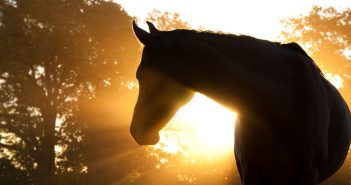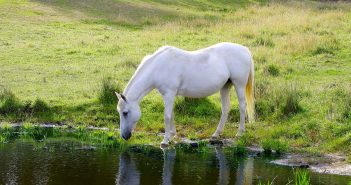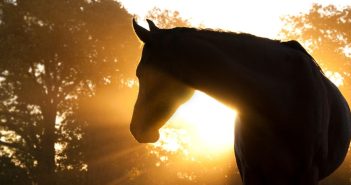Horses are one of the most beautiful, most powerful animals you can own. Despite their power and grace, they need more care than many other animals on your ranch or at your home. It’s important that you’re aware of the responsibilities that come with horse ownership before you take the leap. Educate yourself about what to know and expect before getting a horse and you’ll have a partner around the ranch for decades to come.
Remember How Much Space a Horse Needs
You can’t just fence in an area of your backyard and say that it’s enough space for a horse. Similarly, you can’t provide a horse with only a stall in a barn and expect it to be happy and healthy. If you don’t have enough room on your property, you can consider boarding your horse, though this option is more expensive.
Expect to make use of one and a half to two acres of land for your first horse, plus another acre for every additional horse.
If you can’t provide your horse with a large swath of land for resting, exercise, and grazing, consider beginning your horse-owning journey with a miniature horse. These smaller alternatives to horses may not provide you with as much utility as a full-sized horse, but they’re cheaper and require less space than a full-sized horse.
Be Careful When Buying Your Horse
When you don’t know anything about horses before buying one, you’ll be an easy target for a seller to pawn their most difficult, untrained, and unhealthy animals off to. Bring a horse expert along for the ride to help determine if the horse matches the personality you need as a beginner owner. A green horse with a green owner may provide you with a difficult experience that you’re not prepared for.
A good way to check a seller’s integrity is to ask them to ride the horse. Carefully watch how they handle the animal and how well the horse listens to commands. A horse that requires minimal training is excellent for beginners.
A Horse’s Needs Change With the Environment
The environment you live in plays a big role in how you’ll care for your horse. A warm environment with a steady climate will provide a horse with plenty of options for grazing and outdoor exercise year-round.
In an area that experiences all seasons, you’ll need to be aware of how much your horse’s diet and exercise requirements may change during the winter. Lucerne Farms has a thorough list of the steps you’ll need to take to prepare a horse and barn for winter, which you can view here. Horses can survive in any climate so long as you take proper care of them!
Doing your research about what to know before getting a horse will save you the pain of losing your horse or having to sell it soon after you’ve bought it. Leasing a horse before you buy can help you decide if you’re ready to take on the responsibility of ownership. Never rush headfirst into horse ownership—the results can be costly!




